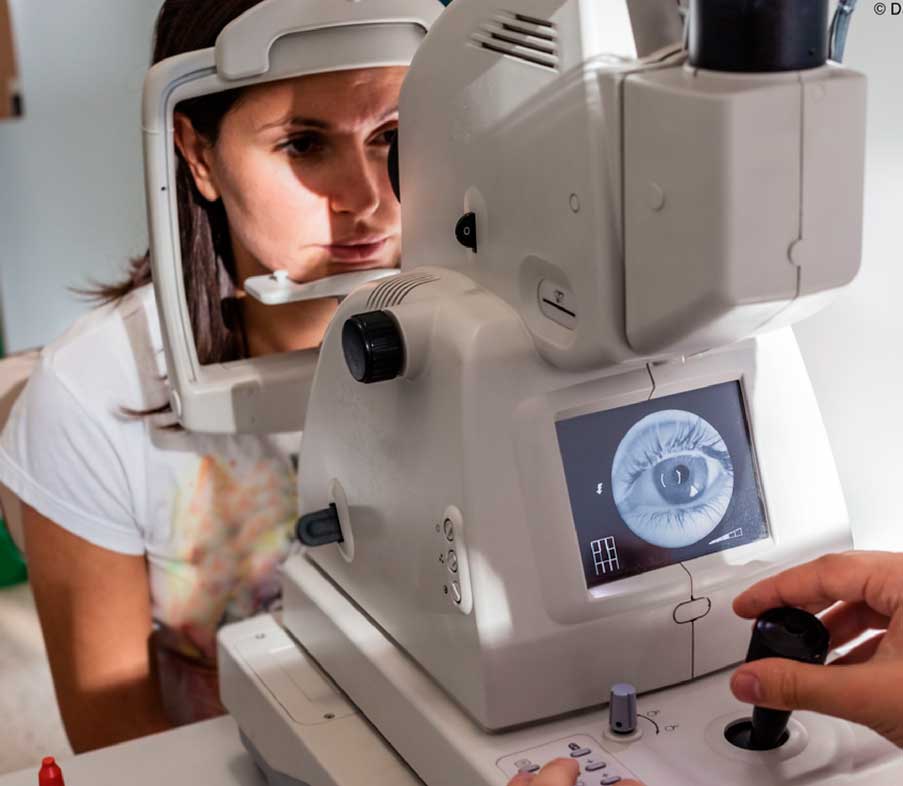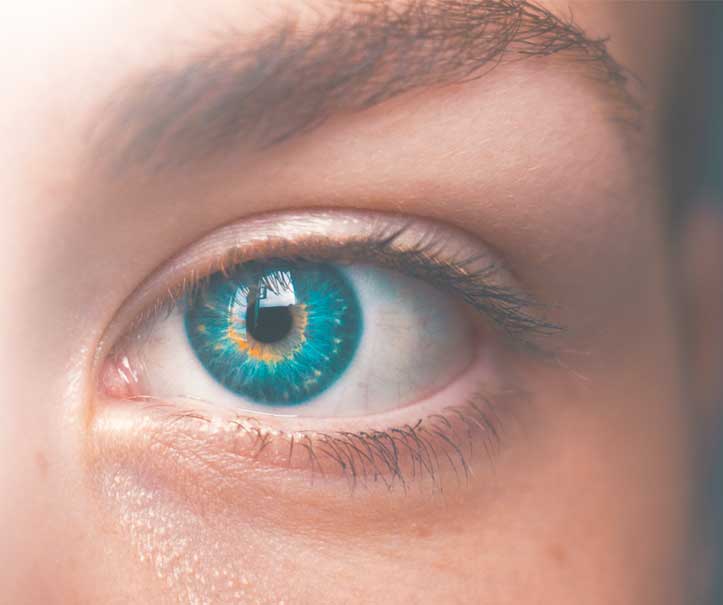Blepharitis is a noncontagious inflammation of the eyelids that affects eyelid margins–the area where the lashes grow. This common condition may cause redness, discomfort, itchiness and a stinging or burning sensation. Often associated with bacterial infections and certain skin disorders, blepharitis tends to recur, making it difficult to treat and manage.
General symptoms. While it blepharitis does not pose a serious threat to vision, it can be an uncomfortable and unsightly condition. Some symptoms include:
Complications. If you have blepharitis, you may also experience complications and secondary infections:
Blepharitis has two basic types, based on the location of the eyelid where the problem occurs: anterior blepharitis and posterior blepharitis. Anterior blepharitis involves the outer edge of the eyelid where the eyelashes are located. Posterior blepharitis, the more common of the two forms, involves the inner eyelid and is related to abnormal secretions from the oil glands (termed the meibomian glands).
The exact cause of blepharitis is not always known. However, the condition if often associated with certain risk factors such as bacterial infections and eyelash mites or lice. Individuals who have the following skin conditions and sensitivities may be more prone to blepharitis:
In general, different factors are associated with the two forms of blepharitis. Anterior blepharitis is most commonly related to the presence of bacteria (Staphylococcus) and scalp dandruff. Posterior blepharitis is typically connected to acne rosacea and dandruff (seborrheic dermatitis).

If you are suffering from any type of eye irritation, it is important to have the problem properly diagnosed–particularly in the case of blepharitis. At Beach Eye Medical Group in Huntington Beach, Orange County our eye doctors will carefully examine your eyelids and eyes under magnification. In certain cases, a Beach Eye doctor will gently swab your eye to collect a sample of the oil coating or crust. This sample will be analyzed to determine if there is bacteria, fungi or allergens present.

Unfortunately, blepharitis is often a chronic condition; however, it can be managed with daily attention and therapeutics. Self-care and good hygiene practices may be sufficient to control blepharitis flare-ups. Come common at-home remedies include:
Depending on the severity of your blepharitis3 or level of infection, your Beach Eye doctor may prescribe medications to address the issue and alleviate symptoms. Medications can include:
In some instances, a patient may be advised to seek treatment for an underlying condition–such as rosacea and seborrheic dermatitis– that is related to blepharitis.
If you have blepharitis symptoms and signs that are ongoing, contact Beach Eye Medical Group to make an appointment for a comprehensive examination.
References
1 What Is Blepharitis? Available: https://www.aao.org/eye-health/diseases/what-is-blepharitis
2 Blepharitis. Available: https://www.mayoclinic.org/diseases-conditions/blepharitis/diagnosis-treatment/drc-20370148
3 Check if you have blepharitis. Available: https://www.nhs.uk/conditions/blepharitis/
4 Dry eyes. Available: https://www.mayoclinic.org/diseases-conditions/dry-eyes/symptoms-causes/syc-20371863
A great experience. Very professional, full of integrity. Certain conditions prevent special enhanced lenses from eliminating glasses for me and Dr. Shah explained that these enhanced lenses would not be worth the extra cost for me. How many times have you heard someone tell you to spend less money?